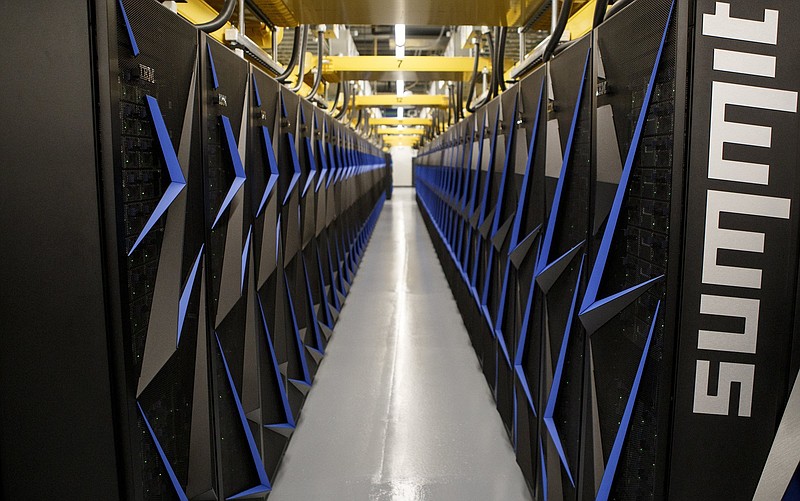Last year, Food and Drug Administration experts testified before Congress that the United States is at the forefront of health care innovation and development. The past few weeks have afforded Tennessee scientists the opportunity to prove those experts right and flex their muscles against the spread of COVID-19.
Dawn Richards and Elizabeth Forester, researchers and instructors at Chattanooga's own Baylor School, transformed their teaching lab into a COVID-19 testing site.
Experts at Vanderbilt University Medical Center's Denison Lab are developing treatments and vaccines for the disease.
Researchers at Oak Ridge National Laboratory are using Summit, the world's fastest supercomputer, to identify drugs that scientists may eventually use to target the virus. Recently, Summit screened more than 8,000 compounds for viability in a matter of days - a feat that would have taken months in a laboratory.
Eager to do more, Oak Ridge scientists invited a team from the Cleveland Clinic to use Summit for additional pharmacological research. This work occurs through the newly developed COVID-19 High Performance Computing Consortium, an effort sparked by the White House Office of Science and Technology Policy, the Department of Energy and IBM. This level of collaboration proves leveraging our national capabilities alongside industry leaders can combat this pandemic.
These developments and others reveal so much about the Volunteer spirit. Tennesseans are scrappy when we have to be. We embrace our potential and use it to care for one another. Our researchers are vital members of the world's foremost cache of brain power - but we're still falling behind.
Why? Because none of that talent is dedicated to the actual manufacturing of the drugs and medical devices.
The same FDA experts who testified to the unparalleled competency and productivity of American scientists also identified the cessation of American manufacturing of active pharmaceutical ingredients as a key security concern. Our dependency on foreign manufacturers for those has created serious vulnerabilities in our pharmaceutical supply chain.
The shortage of Chinese-produced drugs used to treat COVID-19, coupled with our current scramble for chloroquine, and muscle relaxers and painkillers for patients on ventilators, has made it clear lawmakers should prioritize bringing drug manufacturing back to the U.S.
Last month, I introduced the Securing America's Medicine Cabinet, or "SAM-C" Act, to encourage an increase in manufacturing.
The act expands on existing programs within the FDA to prioritize issues related to national security and drug shortages. It also authorizes $100 million to develop centers of excellence where universities and the private sector work together to develop new drug manufacturing technology and processes, as well as train the workforce needed in these industries.
The prospect of bringing more jobs and economic security home should be more than enough to motivate policymakers, but there are other reasons to get this done.
In 2007 and 2008, 246 people died after ingesting adulterated Chinese-produced heparin. The contaminant, which is very cheap, was similar in chemical structure to heparin and went undetected in routine tests.
Since 2010, regulators have found serious problems with batches of thyroid medication, muscle relaxers and antibiotics - all produced in China.
In 2018, the FDA recalled blood pressure medications made there that had cancer-causing toxins. Just this month, the FDA recalled a popular heartburn medicine manufactured in China, India and other countries because of contamination concerns.
We can and must do better. Right now, entrepreneurs across Tennessee are stepping up by transforming their businesses into ad hoc coronavirus response centers: distilleries producing hand sanitizer, and factories upending their operations to produce face masks and other personal protective equipment.
As we push forward in the war against COVID-19, shouldn't we give American pharmaceutical innovators the same opportunity to step up?
Republican Marsha Blackburn is the junior U.S. senator from Tennessee.
